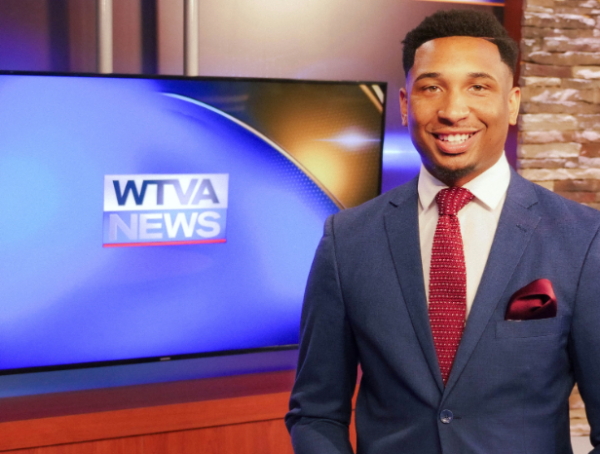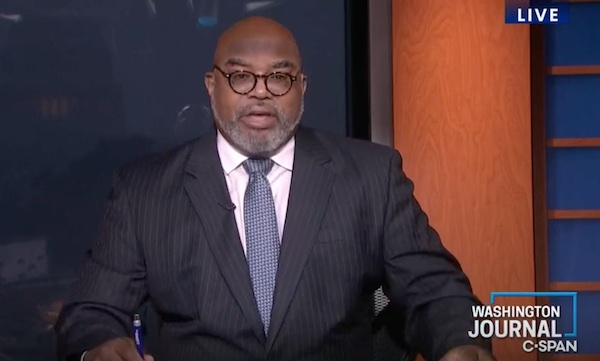Covering LGBTQ+ communities can present a number of challenges to journalists, especially regarding the notion of identity and referring to subjects of stories as the gender they identify with.
Using the right pronouns
A more and more common issue is the use of the rights pronouns by journalists. Sharif Durhams is the managing editor of The News & Observer and also a lifetime member of the NLGJA, the Association of LGBTQ Journalists. For Durhams, using the right pronouns is a matter of respect for your sources.
“You have your rules that are based on some things that you understood, based on your past, and then you have basic respect for the person that you’re interviewing. My name is Sharif, I want people to spell it correctly, and spelling it correctly is the respectful thing to do. And I believe the same is true about pronouns,” Durhams says.
There is a balance in this: journalists have to consider their audiences and depending on the kind of publication they are, they might have to explain the use of pronouns and explain what they mean. The key is having conversations in the newsroom before the question actually arises, believes Durhams. It can also be good to have written guidance about how journalists should go about explaining the use of certain pronouns, in order to avoid having journalists have to make these kinds of decisions alone.
Non-binary pronouns, when not explained, can turn out to be confusing and therefore do a disservice to the audience, the people in the story, and the news organizations. The need for an explanation often needs to be assessed.
“One thing that I would go ahead and highlight as something that can be a challenge is interchanging between two or three different pronouns when talking about the same person in a story. If you’re going to do that, read that story carefully because it can be confusing to readers,” Durhams adds.
Some resources on which pronouns to use can be the NLGJA stylebook, as well as the Trans Journalists Association, or even the SPJ hotline. But the easiest and most effective way to use the right terminology is to ask.
For Ashely Dye, engagement editor for the Tampa Bay Times and writer for the Coast is Queer section, the best moment to ask which pronouns a source identifies with is at the same time as asking them how to spell their name. In TV or radio, this can be done when asking someone how they pronounce their name. Telling your interviewee your pronouns can also be a good way to guide them. Dye does highlight that it is important not to do so only with people whom one perceives as trans in order not to stigmatize anyone.
Using the right terminology and address
As important as using the right pronouns, using the right vocabulary is essential in order not to offend anyone. The word “Queer” for instance, can be subject to debate in newsrooms. Durhams believes that in 2021, in the United States, it is okay to use queer in reporting and in writing, especially when referring to the “queer culture.” Once again, this is a conversation to have within the newsroom, and each publication must determine what is best according to its audience. For big publications that are read internationally, for instance, using the word queer might not be appropriate for its translation in other languages might underline different connotations than its English form has.
“I worked at CNN, an international publication. There are people in cities in the United States where they use the word queer and that’s fine. There are people in Eastern-European countries, where there is a translation of queer, or they read it in English as queer, there could be a reaction. Again, you have to know your audience and have at least a discussion about whether that is an issue,” Durhams says.
Other questions of language were raised in journalism especially with the term LGBT, LGBTQIA, LGBTQ+… Language is a living instrument, it is always evolving. While the signification of the letters A and I, as well as the meaning of the “+”, can be explained and defined in a stand-alone article, Durhams thinks that in 2021 everyone understands the meaning of LGBT without needing explaining.
Lastly, Dye alerts about the use of “dead names”. Dead names are names that were given at birth but are not used anymore by someone who is transgender. A lot of people have trauma associated with their dead name, and it can be seen as very insulting to use someone’s dead name. When Dye was an intern, she remembers someone in her publication brought back a dead dame and used the wrong pronouns in an article, and she, even in her position of an intern, notified it and started that conversation.
“That conversation should have happened so much earlier on in the story, and so that was kind of my goal, making sure that these things happen way before the copy-desk seized it,” Dye says.
She was then invited to a policy committee which goal was to create guidelines for the entire newsroom and make sure that there were resources available to cover these issues. She believes that journalists should be the ones to lead the way regarding dead names because if they do not use people’s new names, no one is going to know this is the name they should use themselves.
Should there be paid experts on diversity issues?
Dye has several times found herself being the person her colleagues go to when they have a question regarding diversity and the LGBTQ+ community. While it does not bother her to educate, it does take a good amount of her time, time that she cannot spend on the tasks of her job title.
“Journalists are supposed to research, right? That’s our entire job. There are plenty of things that people report on that they have had no prior experience about, whether it be taxed, etc. You have to research it. You can’t really rely on that one person in your newsroom who is super into taxes, and all these taxes reforms and they’ll tell you everything,” Dye says.
The question that arises from this is whether journalists should be compensated for that extra work, for their role as advisors on a certain topic. Durhams believes that this is something that can be brought up during evaluations if the journalist is willing to become an expert on the subject.
“If you’re in a newsroom that values diversity in the same way that they value accuracy, in the same way, that they value accountability for public officials, in the same way, that they value your other journalistic values, then they should see your contributions and bringing in knowledge about diverse communities to that newsroom as something worth paying for, and as something that is valuable and as something that is part of your job,” Durhams concludes.
These thoughts were gathered during the webinar How to Improve Your Coverage of LGBTQ+ Communities by Poynter.org








